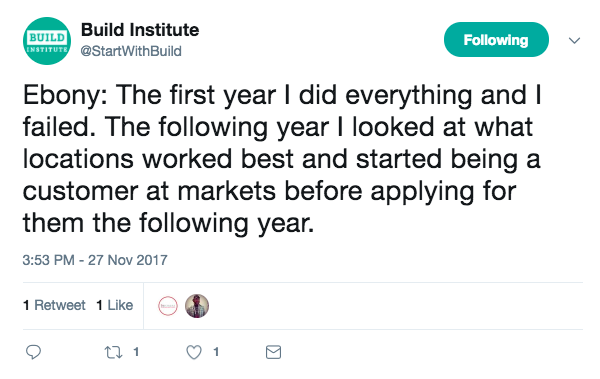These Mobile Businesses are Changing the Game in Detroit
Running a successful business is tough. Running a successful mobile business can be even more difficult! This week, I participated in a panel discussion that took a deep dive into what it takes to run a successful mobile business in Detroit.
The panel was a part of Build Institute's Open City series, and featured four business owners: Lisa Waud of Pot and Box, Alleah Webb of Drifter Coffee, Ebony Rutherford of Trish's Garage, and Paul Thomas, MD (that's me!) of Plum Health DPC. The panel was expertly moderated by Sarah Donnelly of TechTown Detroit.
Build Institute's Open City Panel, featuring Ebony Rutherford, Alleah Webb, Paul Thomas MD, and Lisa Waud. The panel was moderated by Sarah Donnelly. The event was hosted by Build Institute's Christianne Malone.
Ebony Rutherford of Trish's Garage talked about the choosing the right events to attend, citing that it's easy to lose money by purchasing table space at a poorly attended event. However, turning lemons into lemonade, she would take that time at a slower event to work on her social media production and marketing.
Alleah Webb of Drifter Coffee has built a successful business around an Instagram-able/Pinterest-able mobile coffee house. Her business is among the most unique in Detroit, creating a mobile coffee experience for her audience.
Alleah often participates in public events, like Noel Night, Open Streets Detroit, and MoPop Detroit, and she has also found success by catering to private events, like weddings. This all makes for an interesting story, and Drifter Coffee has gotten some great traditional media exposure, as in this Hour Detroit article.
Lisa Waud of Pot and Box also created a ton of buzz from not only having a mobile flower shop, but also by creating The Flower House Detroit. In the panel, she talked about the pros and cons of operating out of a truck that can have adverse effects on their inventory. For example, when it's 90 degrees outside, the flowers can wilt in less than 3 hours if they are in the truck.
As a business person conscious of profit and loss, she is considering the costs and benefits of continuing the flower truck operation. It's expensive to have insurance for a mobile business and it takes a lot of energy and staffing costs to operate successfully.
Build Institute's Open City Detroit event, held at the Atwater Brewery, 237 Joseph Campau Ave, Detroit, MI.
This was an important point in the conversation! Is a pop-up business/mobile business the end goal or a means to an end? Sometimes, a mobile or pop-up business can lead to a permanent brick-and-mortar establishment. On the other hand, some entrepreneurs prefer the mobile/pop-up business model as it can greatly reduce overhead costs.
For me, having a mobile offering in the first few months of our operation of Plum Health allowed us to operate with a low overhead while building momentum. The goal was to engage enough customers to justify leasing out an office space. Once we had enough momentum, we were able to lease out our office and build from there.
At Plum Health, we still offer house calls to our members, but now there is an added cost to these house calls, whereas house calls were standard in the first 2 months of operation.
All in all, this was a great panel, and I learned a great deal from my fellow panelists and from the moderator, Sarah Donnelly. To the folks at Build Institute, thanks for the invite! And I'm looking forward to the next season of Open City!
- Dr. Paul Thomas with Plum Health DPC






